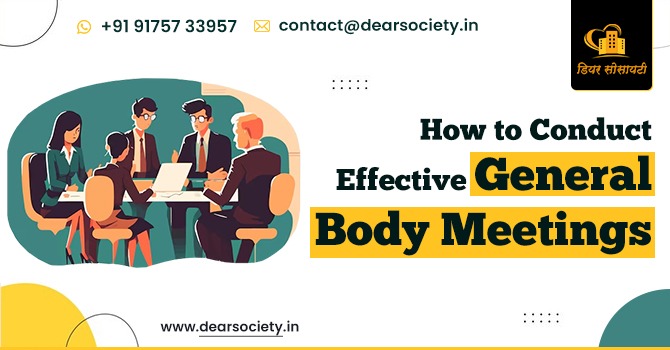Introduction
Conducting general meetings effectively requires adherence to specific procedures outlined in Chapter 11 of the Bye-Laws of the Maharashtra Cooperative Society. This blog examines the critical procedural aspects that ensure orderly and productive general meetings.
Notice and Agenda
Proper notice and a clear agenda are fundamental to successful general meetings.
- Notice: Notices must be sent to all members within the prescribed time frame, ensuring everyone is informed about the meeting. This includes details such as date, time, venue, and agenda items.
- Agenda: The agenda outlines the topics to be discussed, allowing members to prepare adequately. It ensures that the meeting stays focused and covers all necessary points.
Quorum
A quorum is the minimum number of members required for the meeting to be valid.
- Importance: Without a quorum, decisions made during the meeting are not legally binding.
- Bye-Laws Specification: The Bye-Laws specify the quorum for both AGMs and SGMs, ensuring that decisions are made with adequate member participation.
Voting and Resolutions
Voting is a critical component of decision-making in general meetings.
- Procedures: The Bye-Laws outline the voting procedures, including the use of proxy votes if allowed. This ensures that every member’s voice is heard.
- Resolutions: Resolutions passed during these meetings are binding on all members and the management committee, making it essential to follow proper voting protocols.
Minutes of the Meeting
Accurate minutes are crucial for transparency and future reference.
- Recording: Minutes should detail the discussions, decisions, and resolutions passed during the meeting.
- Maintenance: These records provide a reference for future actions and ensure accountability within the society.
Conclusion
Adhering to the procedural aspects outlined in the Bye-Laws ensures that general meetings are conducted efficiently and transparently. This fosters trust and cooperation among members, contributing to the overall success of the cooperative society.











 Call
Call Whatsapp
Whatsapp Enquiry
Enquiry